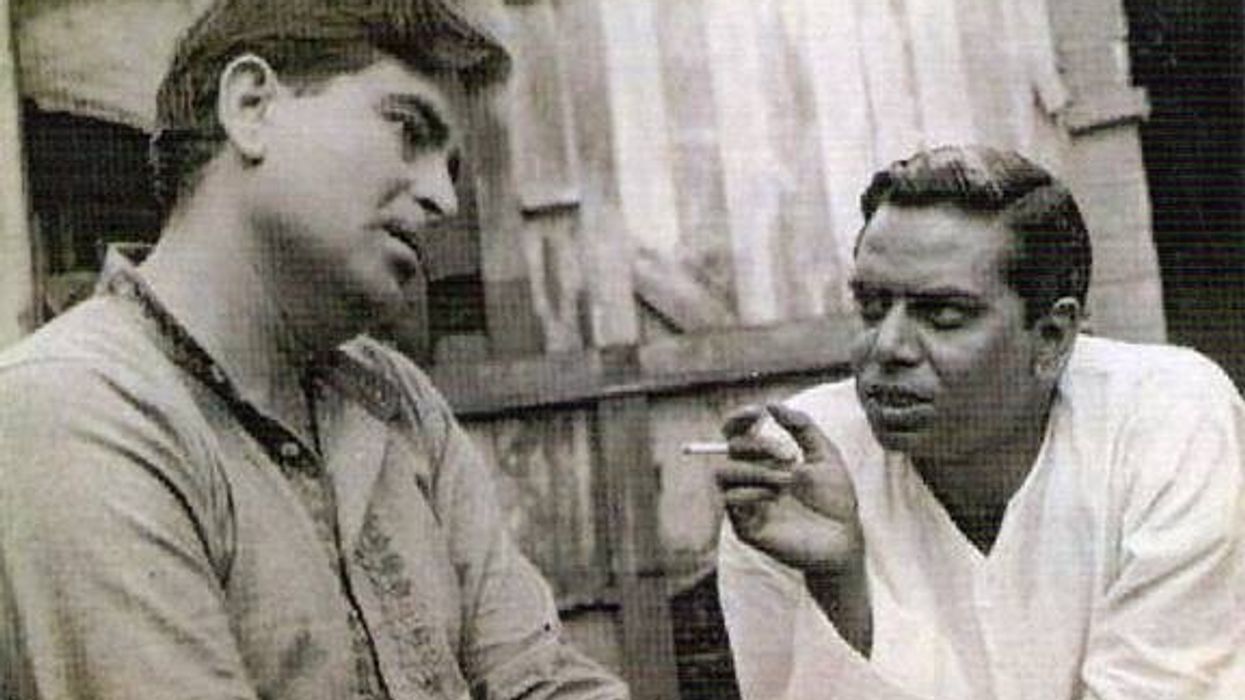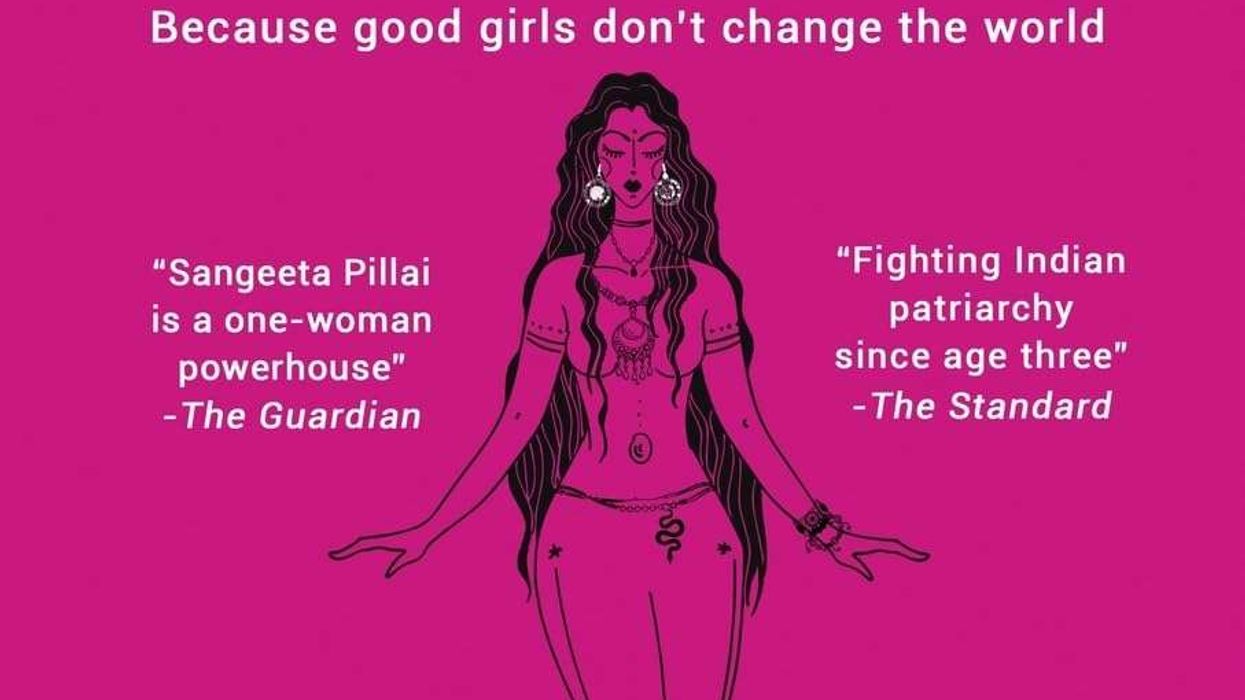LEGENDARY lyricist Shailendra wrote some of the greatest songs in Bollywood history. His tracks have entertained generations of music lovers as they stood the test of time.
The poet turned lyricist was known for his magic in iconic films such as Shree 420, Madhumati, Awaara, Guide, Sangam, Anari, Brahmchari and Mera Naam Joker.
Born on August 30, 1923, the genius writer would have written many more songs had he not passed away on December 16, 1966, aged just 43.
Eastern Eye marks the lyrical giant’s recent birth anniversary by compiling a playlist of his 21 greatest tracks, listed in chronological order.
Awaara Hoon from Awaara (1951): The record-breaking film’s title track brought Shailendra to prominence and showed off his lyrical skills. The song about finding hope in a world filled with hardships became popular in a newly independent India. There would be local versions recorded in Greece, Turkey, China, the former Soviet Union and the Middle East. It has frequently been rated as one of the finest and most impactful Bollywood songs ever written.
Nanhe Munne Bacche Teri Mutti Mein from Boot Polish (1953): Perhaps the greatest film ever made in Hindi cinema with child protagonists demanded a song that captured that youthful spirit and Shailendra delivered. The duet between Asha Bhosle and Mohammed Rafi became a huge hit.
Shree 420Mera Joota Hai Japani from Shree 420 (1955): This iconic song, with its unique lyrics, became a patriotic anthem in an increasingly globalised world. It puts across a powerful message of the heart remaining Indian, even if one’s belongings are imported. Decades later, it was referenced in popular culture, including popping up in Hollywood films Gravity (2013) and Deadpool (2016).
Pyar Hua Ikrar Hua from Shree 420 (1955): Another blockbuster hit from Shree 420 that became massively popular was this super sweet duet. The romantic song about falling deeply in love and forgetting all difficulties was beautifully rendered by playback singers Manna Dey and Lata Mangeshkar. It was filmed on the lead pair, Raj Kapoor and Nargis, with the romantic sequence shot in the rain, elevatingthe song’s appeal.
Yeh Raat Bheegi Bheegi, Yeh Mast Fizayen from Chori Chori (1956): The classic road movie had an award-winning soundtrack composed by Shankar Jaikishan A major highlight was this feel-good romantic duet sung by Lata Mangeshkar and Manna Dey. The lyrically strong track cleverly used different elements of the night, including the moon, to portray the sentiments of love in the initial stages. An honourable mention also for the film’s other memorable song, Aaja Sanam.
Yeh Mera Diwanpan from Yahudi (1958): This beautiful romantic number would earn Shailendra his first Filmfare award for best lyricist. The super hit also resurrected the career of iconic singer Mukesh, after he took a break. In subsequent decades the timeless track would be covered by several artists, including acclaimed British singer Susheela Rahman.
MadhumatiAaja Re Pardesi from Madhumati (1958): The highest grossing movie of that year had a blockbuster soundtrack filled with tracks such as Suhana Safar Aur Yeh Mausam and Dil Tadap Tadap Ke Kah Raha Hai. This top tune about longing was a great illustration of how well the lyricist could write for female protagonists, also.
Sab Kuch Seekha Humne from Anari (1959): Shailendra won his second Filmfare best lyricist award in a row for this top track, which also earned Mukesh a best male playback singer trophy. The meaningful lyrics about being a simpleton in a complicated world filled with contradictions made an important social commentary, and connected with listeners in a big way.
Ajeeb Dastan Hai Yeh from Dil Apna Aur Preet Parai (1960): The greatness of this soundtrack is i illustrated by the duo of Shankar-Jaikishan winning the Filmfare Award for best music director ahead of Naushad’s stunning songs in Mughal-e-Azam. This lyrically perfect love song was rendered beautifully by Lata Mangeshkar and remains popular more than six decades later.
Khoya Khoya Chand from Kala Bazaar (1960): There have been countless Bollywood love songs across the decades, that have used the moon in its lyrics – but this remains one of the finest. Singer Mohammed Rafi brought these wonderfully written words to life with his great vocals.
JungleeChahe Koi Mujhe Junglee Kahe from Junglee (1961): This turbo-charged title track, with the iconic ‘yahoo’ cry, became actor Shammi Kapoor’s signature song. The high energy music from Shankar-Jaikishan was built around powerful lyrics about not caring what anyone else thinks and overcoming storms on one’s own terms. Shailendra’s nuanced lyrics also had great romantic elements and Kapoor’s rock ‘n’ roll attitude gave the song a distinctive edge. Dil Ter have struck lightening, and then have become scared of it yourself.” Shailendra’s lyrics were evocative of passion and showed again that few could write about the start of a new love like he did. It remains one of the best Bollywood songs about affairs of the heart.
O Sanam Tere Ho Gaye Hum from Ayee Milan Ki Bela (1964): This delightful duet sung by Lata Mangeshkar and Mohammed Rafi is known for its feel good energy. The wonderful words perfectly captured the beginning of a romance, by portraying the sentiments of two individuals giving themselves unconditionally to one another. A catchy hook added an extra spark to a song about living for the one you love.
Dost Dost Na Raha from Sangam (1964): One of the greatest tracks about betrayal was a focal point in the year’s biggest hit. The cool composition, sung beautifully by Mukesh, conveyed powerful sentiments about being deceived in friendship and love. Shailendra charted that pain through his lyrics and it connected with anyone who has experienced being let down by those close to them.
Dilruba Dil Pe Tu from Rajkumar (1964): This was perhaps the sexiest Bollywood number Shailendra was ever a part of. He teamed up with composing duo Shankar-Jaikishan on a top track that had plenty of metaphors and featured heavy breathing. It was filmed on reigning Bollywood pin-ups at the time, Shammi Kapoor and Sadhana. Singers Mohammed Rafi and Asha Bhosle enhanced the appeal further with their vocals.
An Evening In ParisAaj Phir Jeene Ki Tamanna from Guide (1965): This fabulous song, filmed on Waheeda Rehman, summed up the spirit of female freedom. The upbeat and feel-good lyrics, about living life to the fullest, resonated with a more liberated generation and became an anthem for those who wanted to break the shackles of a conservative society.
Tere Mere Sapne from Guide (1965): A sparkling gem from the treasure trove of top tracks from this great film was this love song. Shailendra teamed up with composer SD Burman and singer Mohammed Rafi for a deeply romantic number.
Jan Pehchaan Ho from Gumnaam (1965): Although Hum Kaale Hain Tho Kya Hua became popular, the standout song from this murder mystery movie was the upbeat Jan Pehchaan Ho. The catchy song, with an infectious dance beat, became hugely popular. It went on to appear in Hollywood films, international TV shows and even adverts around the world. American singer Olivia Jean also did a cover version of it.
Raat Ke Hamsafar from An Evening In Paris (1967): The stylish France-set film had this great romantic number. The lyrical genius created an atmospheric track that used the night and impending morning as a perfect metaphor for a love in its initial stages. Singers Mohammed Rafi and Asha Bhosle brought the delightful duet to life.
Chori ChoriMain Gaoon Tum So Jao from Brahmachari (1968): Shailendra posthumously won his third Filmfare best lyric award, two years after he tragically passed away, for this sweet song. It’s essentially a lullaby, about singing someone to sleep and wishing they drift off into a world of beautiful dreams. Less was definitely more on this track wonderfully sung by Mohammed Rafi.
Jeena Yahan Marna Yahan from Mera Naam Joker (1970): There is no denying that Shailendra did his finest work with Raj Kapoor. The melancholic song about the vagaries of life was a fitting swansong, as the film was released four years after the lyricist passed away. Shailendra’s thought-provoking words illustrated why he was one of a kind and that is why his songs endure long after he left this world.












